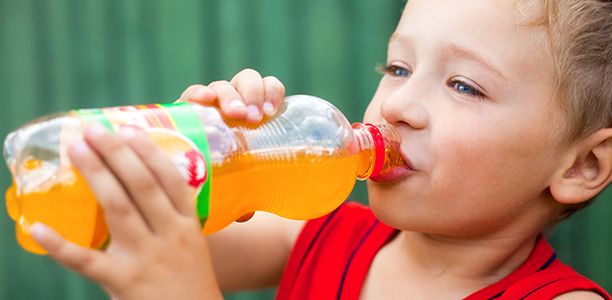A Deakin University study provides the strongest evidence yet that sugary drinks and fatty foods are linked to the growing rate of obesity in Australian children.
Deakin health researchers examined the data from a study of more than 4000 children aged 4-10 years and found a direct link between each time a child ate unhealthy foods and consumed sugary drinks and an increase in their weight. The results of the study are published in the research journal Obesity.
“Many would say ‘well yes we already know this’,” said Dr Lynne Millar of Deakin’s WHO Collaborating Centre for Obesity Prevention.
“However studies to date have been inconclusive, with some finding a connection between sugary drinks and fatty foods and children’s weight and others not. We have conducted a very robust study, and for the first time found that these foods and drinks independently contribute to childhood obesity.
“Hopefully our results will provide the level of evidence needed to convince governments to adequately invest in strategies to reduce the consumption of these foods and encourage the food and beverage industries to rethink their push to encourage people to buy these products.”
The researchers used data from 4164 children aged 4 to 10 years who participated in the Longitudinal Study of Australian Children. The information, collected over four time periods two years apart, was examined to determine the relationship between how often sugar sweetened drinks and high fat foods were consumed and the children’s body weight.
The sugar sweetened drinks included fruit juice, soft drinks and cordial. With the high fat foods being meat pies, hamburgers, hot dogs, sausages or sausage rolls, hot chips or french fries, potato chips, savoury snacks such as biscuits, doughnuts, cake or chocolate.
The results showed that at six years old the children consumed sugar sweetened drinks 1.4 times in a day and high fat foods 1.9 times. This increased by age ten to 1.5 times per day for sugary drinks and 2.5 times for fatty foods. With each drink or high fat food consumed, the children’s BMIz score (a standardised BMI measure used specifically with children) increased by 0.015 and 0.014 units respectively.
“While the increases may seem low, they are cause for concern,” Dr Millar said.
“A normal a BMI-z score would be zero, with a score of above 1 considered overweight or above 2 obese.
“Using the WHO growth standards to categorise weight status approximately one-third of children in the study were overweight or obese; 32% at wave 1, 28% at wave 2, 33% at wave 3 and 35% at wave 4.”
Dr Millar said the relationship between unhealthy diets and BMI in children is crucial for targeting obesity prevention strategies.
“The level of obesity in developed countries, including Australia, has reached epidemic proportions and is now a major preventative health priority for most countries,” she said.
“In Australia, the reduction of sugar sweetened beverages and high fat foods has been the focus of many prevention measures but, until now, the evidence has not been clear about the relationship between high consumption of sugar sweetened drinks and high fat foods and childhood obesity.
“Now that we have confirmed that sugary drinks and fatty foods do result in weight increase in children, it is clear that urgent action to reduce consumption is required if we are to help this generation of children out of the obesity epidemic.”
(Source: Deakin University, Obesity)










